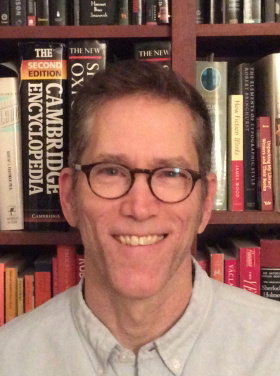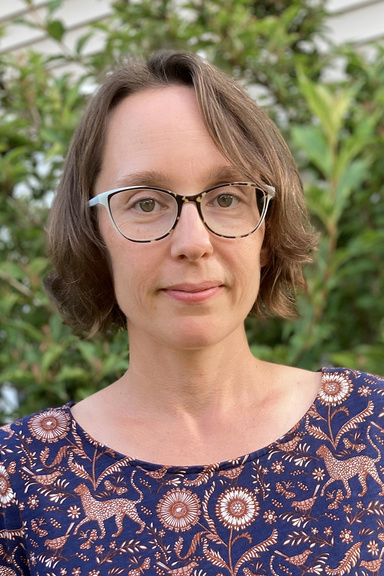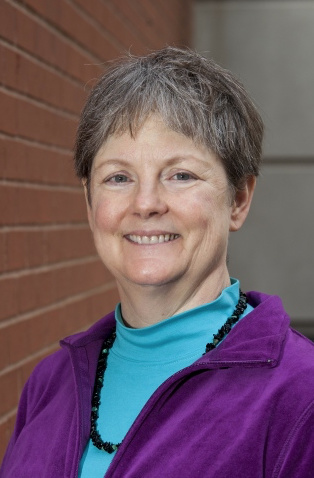Four University of Iowa faculty members were awarded the nation’s most prestigious humanities scholarship, National Endowment for the Humanities (NEH) grants. The NEH awarded $24.7 million to 208 humanities projects nationwide.
The funding awarded to UI faculty will support projects including completing a book on American public opinion about U.S. foreign policy, creating an undergraduate laboratory space to examine global print and manuscript cultures, and developing a digital resource for teaching health narratives in multiple languages.
Michaela Hoenicke Moore

The associate professor in the Department of History was awarded a $60,000 fellowship to complete her book, The Varieties of American Patriotism, which examines American foreign policy views at the grassroots level. Ordinary Americans participated in foreign policy debates to a much larger extent than previously recognized, Hoenicke Moore argues. Based on citizen letters, memoirs, and oral histories—from the Munich Crisis in 1938 through the fall of Saigon in 1975—her study is the first to examine in-depth, and with a view to change over time, how citizens responded to their country’s global leadership and military interventions.
Varieties of American Patriotism highlights voices from three overlapping groups—soldiers, African Americans, and immigrants—whose transnational experiences are emblematic for the connection between citizenship and international engagement, yet whose complex sense of national belonging and layered views on international affairs have often been muted, segregated into separate literatures, or folded back into a sentimental-patriotic narrative, Hoenicke Moore says.
A portion of Hoenicke Moore’s NEH funding comes from the NEH’s “A More Perfect Union” initiative, designed to demonstrate and enhance the critical role the humanities play in our nation and support projects that will help Americans commemorate the 250th anniversary of the Declaration of Independence in 2026.
“This is a much more hopeful and encouraging story than we might suspect,” Hoenicke Moore says, “and I am so excited and grateful for this opportunity to work full time on this study that amplifies the voices of ordinary and marginalized Americans in our nation’s foreign policy debates.”
Matthew Brown and Elizabeth Yale

Brown and Yale received a $150,000 Humanities Initiatives grant for their project titled “Global Book Cultures and the Student Laboratory: Undergraduate Education at the UI Center for the Book.” The co-directors’ three-year project aims to develop an undergraduate laboratory space and related curriculum that will engage students in the study of global print and manuscript cultures.
Brown, director of the UI Center for the Book and associate professor in the Department of English, has been a UI faculty member since 2001. He researches how readers in history have used books. He has written an award-winning book and multiple articles, and has given numerous talks on the subject.

Yale is a lecturer in the Department of History and an adjunct assistant professor in the Center for the Book. A historian of science and the book in Britain and Europe, Yale is currently president of the Andrew W. Mellon Society of Fellows in Critical Bibliography at Rare Book School.
“It’s a transformational grant that will help the UI Center for the Book, a world-leading graduate program, reach undergraduate students,” Brown says. “Equally, it enriches our curriculum in necessary and exciting ways.”
“In our classrooms, we’ve seen how hands-on work with material texts from diverse world traditions transforms our students’ understanding of the humanities, and opens their eyes to new career possibilities,” Yale says. “With Iowa’s unparalleled faculty and curatorial expertise in global book studies, we have the opportunity to bring these experiences to undergraduates across the university.”
Brown and Yale will work with colleagues in the Department of Religious Studies, Asian and Slavic Languages and Literatures, the UI Center for the Book, and UI Special Collections to establish a dedicated laboratory space (the Book Studies Lab) where undergraduates can gain hands-on experience making and studying books and manuscripts; build an undergraduate curriculum in book history and book arts; and develop and share best practices in hands-on pedagogy with rare, historic material texts.
Kristine Muñoz

Muñoz, professor of Spanish and Portuguese, and co-director Daena Goldsmith, professor of rhetoric and media studies at Lewis & Clark College, received a $149,999 Humanities Initiatives grant for their project titled, “Salud, to your Health! Resources for Teaching Health Narratives in English and Spanish.” The three-year project will create a digital database of course materials and other resources for developing and teaching courses in areas of narrative medicine and health humanities to undergraduates and health professionals across the U.S. They also will develop and conduct workshops at conferences and with community groups to encourage the use of oral and written narratives as ways to understand and deal with health, illness, grief, and caregiving.
“I’m especially hoping the grant will build on the community outreach and medical Spanish courses that are already so popular among our majors, maybe to explore new ways for our students to work with Spanish-speaking communities in storytelling activities around health issues,” Muñoz says. “Our proposal drew on years of research that shows how powerful stories are for patients, providers, caregivers, and family members whenever they’re dealing with health issues, whether those are physical or mental health.”
Muñoz’s scholarship is centered in ethnographic fieldwork conducted primarily in Colombia. This includes social science research, such as a study supported by a Fulbright grant in spring 2022 of ways that schools attempt to create cultural change through an initiative called “The Peace Course,” brought about during the Havana Peace Accords in 2016. She also works to circulate scholarship about Colombian culture into public digital spaces in ways that are accessible and compelling to educated lay publics and Spanish language educators. An ongoing project related to that effort is the website, Medellín after Escobar, constructed through UI’s Digital Scholarship & Publishing Studio.